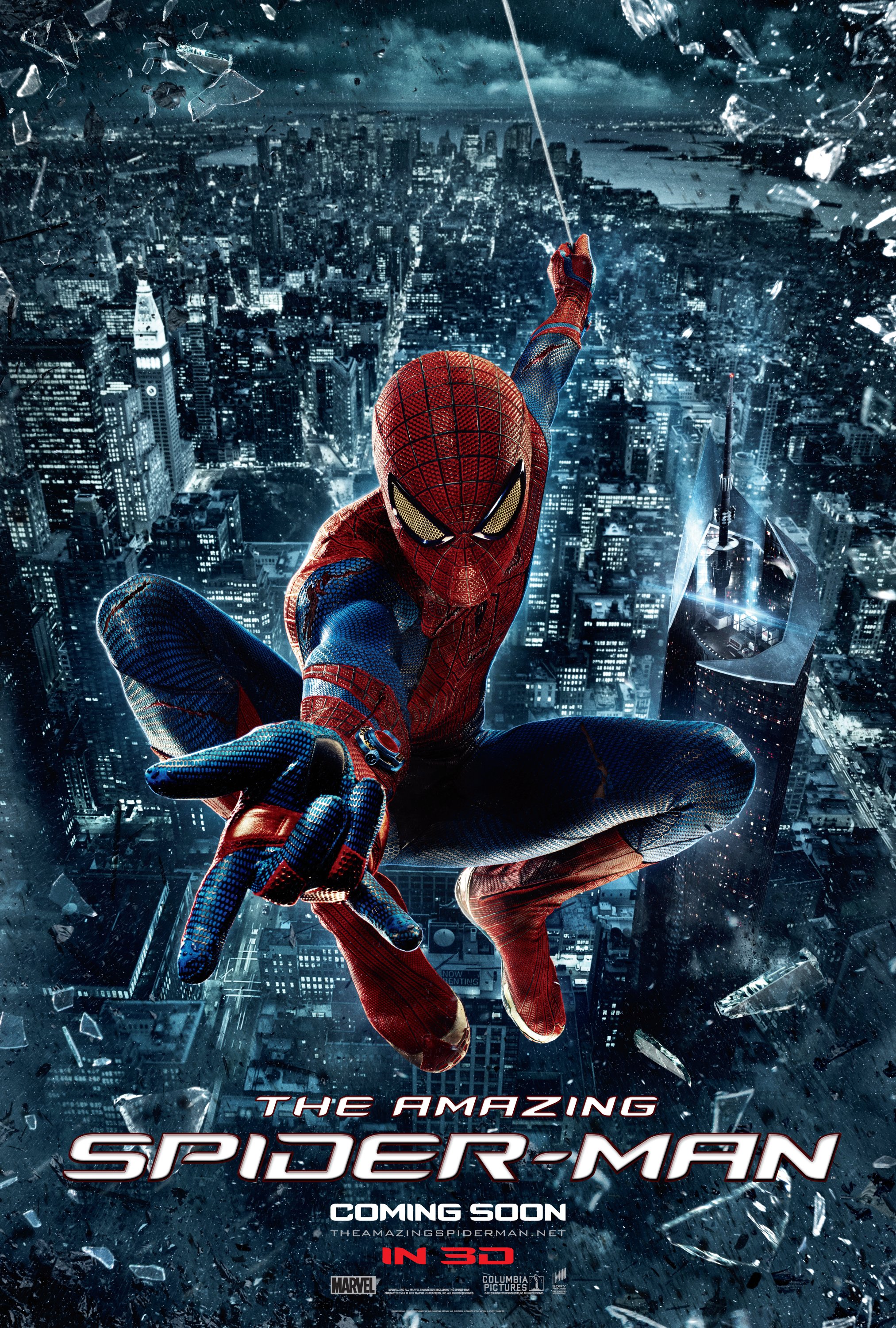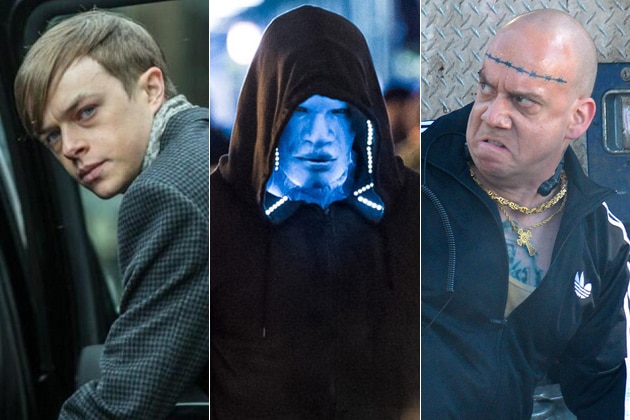
Villains Make the Hero
From a storytelling standpoint, the exaggerated nature of a superhero’s existence typically requires strong demands of its antagonist in order to justify the presence of a hero’s x-factor upon the safety of civilians and their habitat.
They can be complex individuals with sympathetic goals, forces of nature with strong presence and charisma, powerfully threatening and well organized syndicates, monsters of unimaginable danger but above all else, they need to be a compelling danger in their own right with a well fleshed out reason for drawing the hero’s attention. Where “The Amazing Spider-Man” fails in this regard is its failure to adhere these qualifications to the human condition.


Rhys Ifans enters the picture with a strong first impression. Curt Connors is well defined within his opening seconds of the film as a passionate and driven man of science that loves his field of study and carries a personal stake in insuring his research goes into production in order to reap its benefits.
Connors holds Peter closely, viewing him as a beloved family member that he wants to make amends for and the key to cracking the passion project that he’s been struggling with for years that will restore his missing arm and, presumably from his perception, the good life that he had prior to the loss of his best friend’s life. So it only makes sense that his goals after becoming the Lizard are to blast the entire city with the same dangerous mutagen he attempted to murder his employer over, that has turned him into an inhuman monster, right?

For all the power in his debut and warmth in his follow-up scenes, everything complex about Connors goes straight out the window once special effects get involved.
The movie does make a very half-assed attempt to portray him as mentally unstable, giving him a Jekyll and Hyde complex that is undercut by how little of his perspective is followed post-transformation but even this element fails to provide the character with proper tragedy, as his Lizard persona is shown to not only remain active within his human form but to operate so categorically evilly, that whatever ill-defined motivation he may have had is contradicted by his actions.
If he loves Peter Parker in any capacity whatsoever, why does he taunt him while constantly tossing him off of buildings and slamming him through walls? Monologuing about how much a character sucks while taunting them with their dead family, who happen to also be one’s close friends is typically not the sign of somebody with second thoughts about eliminating them, especially when we get no further insight into his psyche.
His transformations are inconsistent with his split personalities, each showing themselves as dictated by mandate of the plot and while your mileage may vary, I personally found his physical appearance to be downright laughable. The lack of a snout prevents him from looking truly animalistic but his utter lack of charisma or sensible dialogue undercuts his presence as an actual villain, making him feel like the plot device that he is ultimately played as.

While the flaws of the “Amazing” franchise stand on their own, that this plot has been done before with more success by the Raimi films doesn’t help matters.

Alfred Molina’s take on Doctor Octopus in “Spider-Man 2” shares many similarities with Ifans’ Curt Connors; a passionate scientist with a desire to benefit mankind while sharing a friendship/mentor relationship with Peter, who is driven to crime after his life’s work backfires. The primary difference lies in Doc Ock’s motivations actually making sense.
Unlike “The Amazing Spider-Man,” “Spider-Man 2” establishes the dangers of its villains work ahead of time and further hints that his passion may be blinding him to his own hubris, while foreshadowing the circumstances that directly catalyze his turn to villainy.
After his failure, his mentality is directly explored, clearly illustrating why he’s committing crimes and highlighting exactly how out of character it is for him. All of his motives are laid out and his tragedy provides a living example of how noble intentions can still have disastrous results.
While there are deleted scenes that offer a more detailed look into Connors’ personal life, they just aren’t enough to cover up how much of an afterthought the super villain of a superhero movie was. His utilization is sadly one note at best and nonsensical at worst.
While there are deleted scenes that offer a more detailed look into Connors’ personal life, they just aren’t enough to cover up how much of an afterthought the super villain of a superhero movie was. His utilization is sadly one note at best and nonsensical at worst.
However unfortunate Garfield-Spidey’s inaugural villain showdown may have been, it’s all the more sad that absolutely no lesson was learned or applied to his sequel.

Let’s ignore the movie’s marketing. While touted as the primary threat of the film, Electro has very little stake in any of “The Amazing Spider-Man 2’s” actual plot but that shouldn’t be held against the movie because the truth is that none of the villains present offer the story a passably fleshed out antagonist.


Electro may have the most screen time but his role is a highlight of how half-baked every idea within the films is. Lack of subtlety aside, Jamie Foxx’s portrayal of Max Dillon, as one note and cartoonish as it may be, is at least presented with clarity; he’s shy, unstable and obsessed with Spider-Man. Coming into superpowers offers a plethora of story opportunities to explore; seizing Spider-Man like a trophy or something to possess, trying to be a hero like Spider-Man but failing due to a lacking moral compass or disregard for collateral, a realization that if he can’t be Spidey’s partner, he’ll be his villain just to keep a close relationship with him a la "Unbreakable," etc.
Instead, all of his character traits are obliterated in favor of a weird pseudo-philosophy spouting agent of chaos willing to destroy everything because Spider-Man and evil and blah, blah, blah. This instance is brought about by a rushed "betrayal" of Spider-Man's claim to take him somewhere safe and is of course capped with a one-liner so nonsensical within the context of Electro's mindset that it puts about 90% of “Batman and Robin’s” script to shame.
Meanwhile, Dane DeHaan’s multifaceted performance as Harry Osborn is wasted on a script so hungry for its own sequels and spinoffs that he has to struggle to undergo an arc that could have easily encompassed several films within the whiplashing span of 25 minutes of the same film introducing him. One could make an argument that his villainy rises sheerly out of his own entitled rich boy pettiness. I would argue that a great actor working with a solid director of actors wouldn’t inject that much complexity into a character that’s due for reprisal if the role was meant to be throwaway.
A true shame because his Green Goblin utterly steals the show. From the laugh to the look, he gets little time to just cut loose and he milks every single moment for all of its worth.
The only cast member that seems to have even the faintest idea of what movie he's in is Paul Giamatti. His hammy performance with no pretense of false complexity in a sea of elements that think that they're deeper and more meaningful than they truly are is a breath of fresh air that begs the question of why he couldn't just be the focus.

Sure he had one high energy mode across the entire film with no development but given how little organic development has mattered regarding anything up to this point, does it really matter?
No comments:
Post a Comment